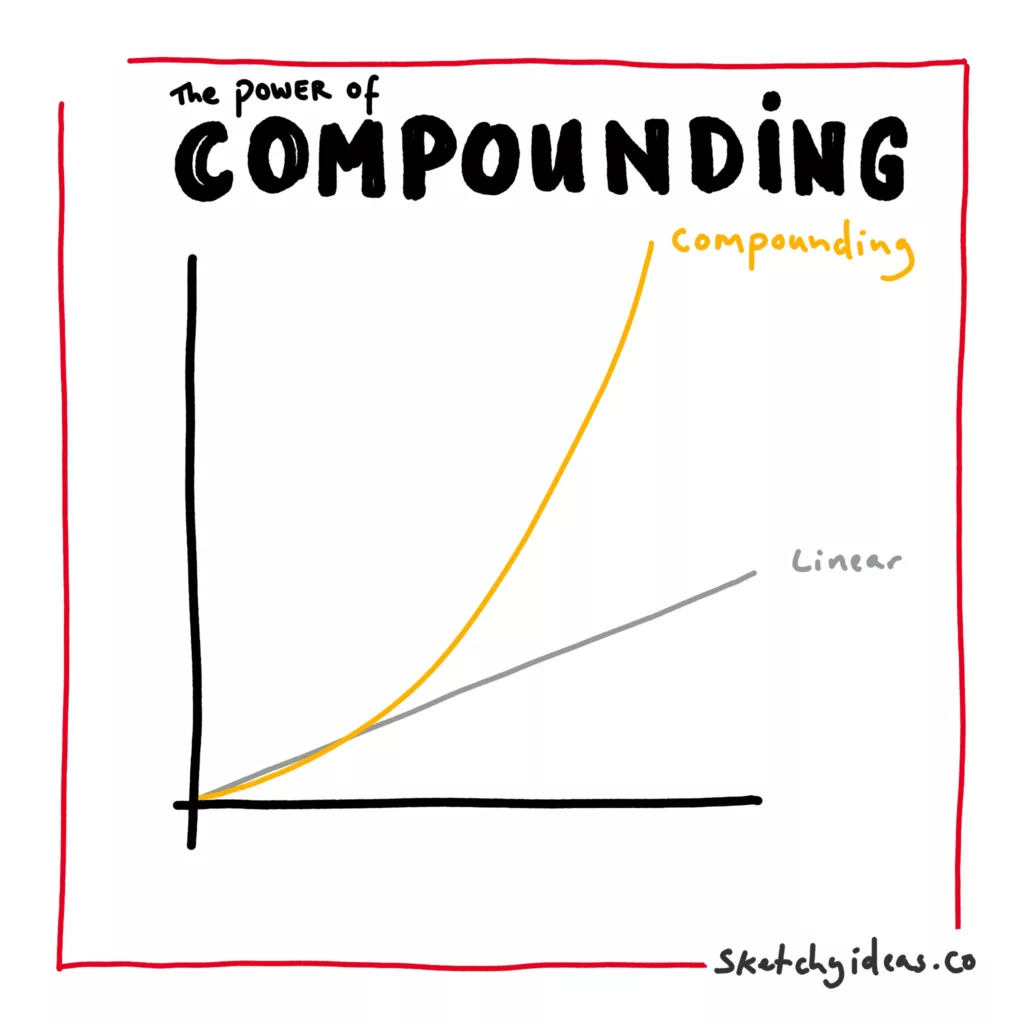The first rule of compounding: never interrupt it unnecessarily.
Charlie Munger
The closest thing to magic in the world of finances is the power of compounding. While its effects appear insignificant at first, the constant increase and feedback loop eventually bring huge results. So much so, that we humans are terrible at predicting its effects.
Understanding this mental model and finding opportunities to leverage it is one of the best investments in your time you can ever afford to make.

What is Compounding?
Compounding is when you gain returns not just on your initial investment, but on the returns you get from your investment. Here’s an example
You invest $100 with a 1% return each year.
At the end of the first year, you have $101 (1% of $100 = $1). Then at the end of the second year, you have $102.10 (1% of $101 = $1.10). And so on.
The benefits, at first, seem tiny. But they start to add up. After 10 years it’s $110.46. After 100 years, it’s $270.48.
When you add in higher returns, faster return windows, and additional contributions, you can turbocharge this effect.
E.g., if you added $10 a month for 100 years, you’d invest $12,100 but you’d have $20,728.25.
And that’s still with our measly 1% annual interest rate.
But compounding doesn’t just apply to the world of finance.
The relevance of compounding beyond finance
Because compounding is so powerful, being able to notice in other areas means we can achieve incredible results.
Even better, many areas of our personal lives can have compounding effects.
- Learning – When we learn something new, we add it to our existing knowledge. If we draw connections with other ideas, we can amplify what we already know.
- Health – the more we exercise, the greater we can perform. For an example, look at the couch to 5k programs.
- Habits – some habits bring compounding benefits. Like writing every day, the first effects may be small but later they are profound.
- Publishing ideas – One article has little impact, two have a bit more, but once you have 50 you have a library which is far more valuable.
- Relationships – each occasion you spend time with someone, you get to know them a bit better. And it magnifies over time.
How to use compounding for the greatest effect
Start soon
The key to leveraging compounding effects is to get started.
The effects are tiny until they gain from past interest. The sooner you start, the sooner the effect kicks in.
What could you start tomorrow?
Start small
Compounding doesn’t need a big lump sum to start.
Sure, it helps, but with most habits that’s impossible. The key is to get the effect going and that means to get started. Once it’s running, we can increase our inputs and benefit from the effects of compounding.
What is the smallest action you could do to make progress?
Stay consistent
The key to compounding is time.
Remember that Munger quote at the start? That’s what it’s all about. In the Psychology of Money, writer Morgan Housel shows that if you kept investing during recessions, you’d gain more than if you pulled your money out (and put it back in) at the optimal times.
That’s the power of compounding.
So keep going even when it is hard.
Conclusion
The Compounding effect is one of the most incredible forces in the world.
Yet few of us take advantage of it.
While many people focus on its benefits in finance, we don’t have to limit our scope to there. Finding opportunities to leverage compounding in our lives and in business are some of the highest return activities we can do.
Whether it’s consistently learning, new habits, or relationships, use the principle of compounding for incredible long-term rewards.

Leave a Reply